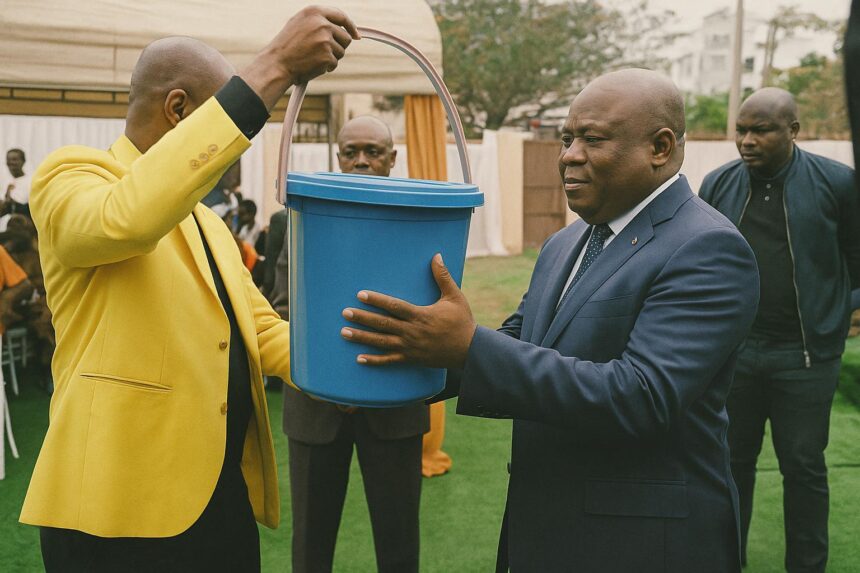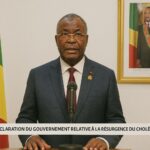Civic Mobilisation for Continuity in 2026
Seven months ahead of Congo-Brazzaville’s next presidential ballot, a crescendo of civic voices is converging on a single request: that President Denis Sassou Nguesso accept nomination once more. The Association pour le Développement de l’Axe Liboka, representing some sixty villages in the Cuvette, added its resonance on 27 July in Brazzaville. Beneath the palm-lined esplanade of Talangaï’s city hall, its chairman Maixent Raoul Ominga announced both an endorsement and an immediate fundraising drive to underwrite the campaign. The scene, coloured by ululations and a disciplined security cordon, offered an early glimpse of the electoral choreography likely to unfold through early 2026.
- Civic Mobilisation for Continuity in 2026
- Historical Weight of the Incumbent
- Legal Framework and Political Arithmetic
- Economic Equilibrium as Electoral Argument
- Grassroots Fund-Raising and Political Psychology
- Diplomacy as Domestic Capital
- Oppositional Undercurrents Without Hostility
- Generational Stakes and Digital Ambitions
- Strategic Scenarios Toward March 2026
- A Calculated March Toward the Ballot Box
Historical Weight of the Incumbent
Denis Sassou Nguesso, in power for most of the past four decades, occupies a singular place in the national psyche. His partisans extol a record that spans the 1999 peace settlement, hydrocarbon-fuelled reconstruction and an assertive climate diplomacy that has turned the Congo Basin into an ecological bargaining chip at forums from Glasgow to Sharm el-Sheikh (UNFCCC archives, 2022). For many rural constituents, the political brand is less ideological than paternal: a custodian of calm in a region periodically rattled by coup d’états.
Legal Framework and Political Arithmetic
The 2015 constitution, revised after a national dialogue, imposes neither a two-term limit nor an age cap incompatible with the president’s eventual candidacy. Legal specialists at the Université Marien Ngouabi underline that the supreme text has weathered several constitutional court validations, lending juridical clarity to the forthcoming race. Opposition parties have voiced procedural concerns, yet the numeric calculus in both chambers of parliament continues to tilt heavily toward the Parti Congolais du Travail, reinforcing the feasibility of a first-round victory should the incumbent stand (Journal Officiel, April 2024).
Economic Equilibrium as Electoral Argument
Behind the slogans lies an economic sub-plot. The International Monetary Fund’s March 2024 review credits Brazzaville with meeting the quantitative criteria of its Extended Credit Facility, citing prudent fiscal policy and advancing debt restructuring talks with Beijing-based creditors. Inflation remains contained at 3.4 percent, while oil prices, though volatile, have stabilised foreign-exchange reserves above three months of imports. For campaign strategists, such macroeconomic indicators bolster the narrative that continuity is less a luxury than a necessity.
Grassroots Fund-Raising and Political Psychology
The coin-laden baskets passed around Talangaï are more than symbolic. Community-financed politics serve as a barometer of perceived ownership over the national trajectory, converting abstract loyalty into quantifiable support. Sociologist Éléonore Mabiala notes that rural associations, historically peripheral to campaign financing, now wield soft power by demonstrating liquidity and organisational discipline, a dynamic likely to influence larger business lobbies as the formal nomination window opens.
Diplomacy as Domestic Capital
Congo-Brazzaville’s diplomatic portfolio under Sassou Nguesso has expanded beyond conventional petro-state alliances. His mediation offers in Sudan and Central African Republic, acknowledged by the African Union Peace and Security Council in February 2024, are brandished by supporters as proof of statesmanship. Moreover, the Green Climate Fund’s 90-million-dollar facility for peatland conservation, signed in December, is frequently cited in domestic rallies as a win accruing directly from the president’s personal rapport with multilateral lenders (African Development Bank brief, 2023).
Oppositional Undercurrents Without Hostility
It would be reductive to suggest universal assent. Civil-society groups such as Tournons la Page have raised procedural queries regarding voter registry updates. Yet their communiqués increasingly frame the contest within legalist language rather than overt confrontation, perhaps reflecting fatigue with confrontational politics in the wider Central African corridor. Diplomatic observers stationed in Brazzaville emphasise that controlled dissent, when channelled through institutional avenues, can itself legitimise an eventual victory.
Generational Stakes and Digital Ambitions
The 2026 poll will coincide with the first cohort of voters born after the 2002 ceasefire. Government advisors concede that a purely retrospective message will not suffice. Hence the accelerated rollout of the National Digital Plan 2025, aiming to extend fibre backbone to all departmental capitals and incubate a Francophone fintech hub on the outskirts of Pointe-Noire. In speeches since May Day, the president has juxtaposed technology with agrarian modernisation, signalling an agenda calibrated for both urban millennials and rural cooperatives.
Strategic Scenarios Toward March 2026
If the incumbent declares before the close of the year, party structures will have nearly three months to orchestrate a nomination congress, followed by a 30-day official campaign. Observers from ECCAS are expected to return, building on a memorandum signed in Libreville in September 2023 that commits the bloc to proactive, rather than reactive, electoral accompaniment. Within that calibrated timeline, the early appeals from associations like Adal serve to pre-empt suspense and project an image of consensual inevitability.
A Calculated March Toward the Ballot Box
Calls for Denis Sassou Nguesso to run again are multiplying not merely out of deference but from a convergence of socio-economic, legal and diplomatic considerations. Whether one reads the movement as orchestrated or organic, it has already succeeded in setting the discursive frame: continuity equates to stability, and stability to prosperity. Between now and March 2026, the task for the incumbent’s entourage will be to translate that equation into ballots while keeping the political temperature modest—an art the Brazzaville establishment has honed with notable dexterity.




















